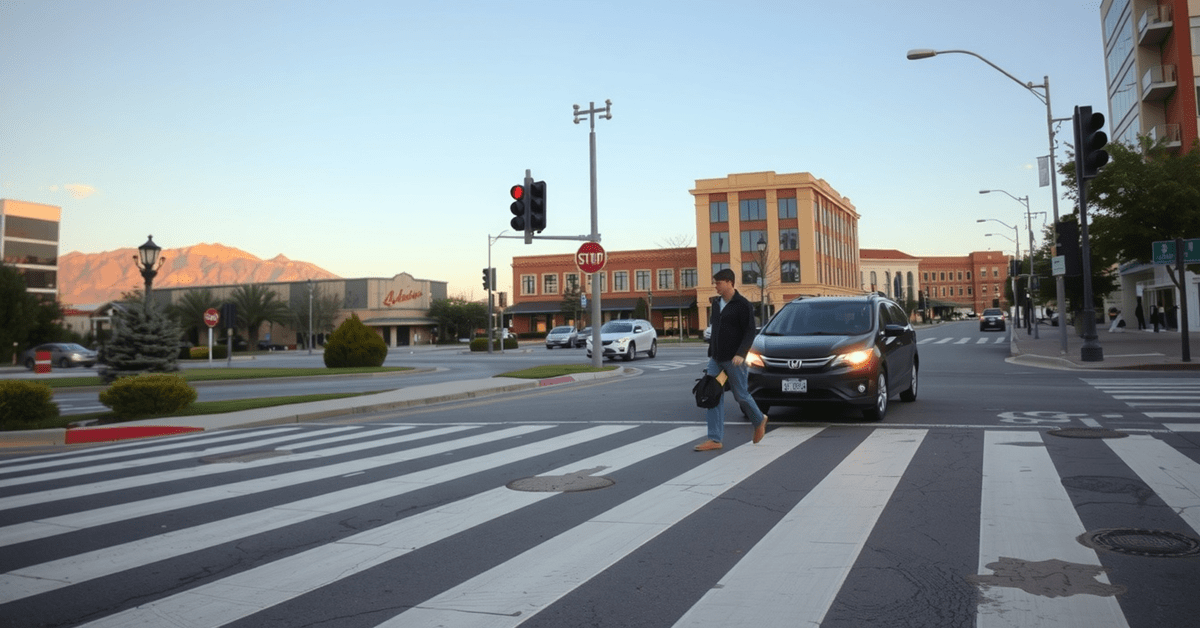Key Takeaways
- Nursing home abuse can take many forms, including physical harm, emotional mistreatment, neglect, and financial exploitation, and signs are often subtle.
- Families play a crucial role in detecting abuse, documenting evidence, reporting concerns, and advocating for residents who cannot speak for themselves.
- Legal action may be necessary to protect a vulnerable loved one and hold negligent caregivers or facilities accountable for the harm they cause.
Trusting a nursing home with your loved one’s care is an emotional decision. You expect compassionate staff, attentive medical support, and a safe, dignified environment. Unfortunately, not all long-term care facilities meet these expectations. In some Utah nursing homes, residents experience neglect, mistreatment, or outright abuse, often when they are the least able to defend themselves.
Recognizing the early warning signs of nursing home abuse is critical. Abuse can escalate quickly, and vulnerable seniors may be unable or afraid to speak up. The sooner you identify red flags, the sooner you can take steps to protect your loved one from harm.
Steele Adams Hosman is dedicated to helping Utah families detect abuse, intervene effectively, and pursue justice against negligent caregivers and facilities. Below is a comprehensive guide to understanding the signs of abuse, why it happens, and what you can do to keep your loved one safe.
What Is Nursing Home Abuse?
Nursing home abuse occurs when caregivers or staff intentionally harm residents or fail to provide appropriate care. Elderly residents depend heavily on caregivers to meet their daily needs, so even small lapses in care can cause serious harm.
Nursing home abuse includes:
- Physical or emotional harm
- Sexual abuse
- Neglect
- Financial exploitation
- Any intentional act or failure to act that creates risk or causes actual harm
Because seniors often struggle with mobility, cognition, or communication, they are particularly vulnerable. Abuse can occur behind closed doors or across multiple shifts, making it difficult for families to detect without knowing what to look for.
Common Types of Nursing Home Abuse
1. Physical Abuse
Physical abuse involves intentional force that causes injury or pain. This is one of the most visible forms of abuse but can still go unnoticed if staff offer misleading explanations.
Common signs include:
- Unexplained bruises, cuts, or welts
- Burns or marks indicating restraint use
- Broken bones or frequent injuries
- Sudden fearfulness around certain staff members
- Repeated hospital visits without clear documentation
Even minor bruising can indicate a pattern of mistreatment, especially when it appears repeatedly or follows a distinct pattern.
2. Emotional or Psychological Abuse
Emotional abuse is just as harmful as physical assault, though often harder to detect. This type of abuse erodes a resident’s dignity and emotional well-being.
Warning signs include:
- Sudden mood swings
- Withdrawal from social interactions
- Loss of interest in hobbies
- Anxiety, depression, or sudden fearfulness
- Reluctance to speak openly around staff
This type of abuse may take the form of yelling, humiliating comments, isolation, threats, or intentionally ignoring the resident’s needs.
3. Sexual Abuse
Sexual abuse in nursing homes is a deeply disturbing and underreported crime. It includes any non-consensual sexual contact with a resident and may involve staff, visitors, or even other residents if the facility fails to supervise properly.
Signs can include:
- Unexplained injuries in genital areas
- Bruising on thighs or hips
- Difficulty sitting or walking
- Torn or stained clothing
- Sudden anxiety around specific individuals
Because many seniors have cognitive impairments, they cannot always articulate what happened, making behavioral changes a key indicator.
4. Financial Exploitation
Financial abuse is shockingly common in long-term care settings. Caregivers may take advantage of residents by accessing financial accounts, convincing them to sign documents, or stealing property.
Warning signs include:
- Missing belongings or valuables
- Unexplained bank withdrawals
- Sudden changes to a will or power of attorney
- Bills going unpaid despite funds being available
- New “friends” or staff members taking unusual interest in finances
Families should monitor finances closely and check for patterns of unauthorized activity.
5. Neglect
Neglect occurs when caregivers fail to meet a resident’s basic needs. Unlike intentional abuse, neglect often stems from understaffing, poor training, or systemic failures, but the consequences can be just as devastating.
Signs include:
- Poor hygiene or soiled clothing
- Bedsores (pressure ulcers)
- Dehydration or malnutrition
- Sudden weight loss
- Untreated infections
- Missed medication doses
- Unsafe living conditions
Neglect is a major concern in understaffed Utah nursing homes, where caregivers struggle to keep up with residents’ medical and personal care needs.
Why Nursing Home Abuse Happens
Many families are shocked to learn how common abuse is, even in licensed facilities. The causes are often systemic and preventable.
Understaffing
A chronic problem in many Utah nursing homes. When too few caregivers are responsible for too many residents, neglect becomes unavoidable.
Inadequate Training
Staff may not receive proper instruction on:
- Mobility assistance
- Dementia care
- Behavioral challenges
- Medication administration
- Emergency procedures
Without appropriate training, mistakes happen, and vulnerable residents pay the price.
High Stress and Burnout
Long shifts, low pay, and emotionally demanding work create stressful environments. Some overwhelmed staff may lash out or take shortcuts.
Poor Oversight or Management
Facilities that fail to enforce policies, conduct background checks, or respond to complaints create environments where abuse can thrive.
Families must remain vigilant because the signs of abuse may be subtle, and residents may fear retaliation if they speak up.
Red Flags Families Should Never Ignore
While each resident is unique, common warning signs include:
- Significant personality changes
- Unexplained injuries
- Unkempt appearance
- Sudden fear of a caregiver
- Missing belongings
- Bedsores or untreated medical conditions
- Decreased mobility due to neglect
- Refusal to eat or drink
If something feels “off,” trust your instincts and investigate further.
Steps to Protect Your Loved One
1. Visit Frequently and Unannounced
Regular visits allow you to observe:
- Staff interactions
- Facility cleanliness
- Meal routines
- Hygiene practices
Unannounced visits help you see how the facility operates when no one is expecting family members.
2. Document Everything
Documentation is essential for proving abuse. Keep a record of:
- Photos of injuries or unsafe conditions
- Dates and descriptions of concerning behavior
- Financial statements showing irregular activity
- Conversations with staff or management
Detailed evidence makes it much harder for facilities to deny wrongdoing.
3. Speak Up Immediately
If you see signs of neglect or abuse:
- Report concerns to facility management in writing
- Request explanations for injuries
- Ask for corrective action
- Follow up to ensure changes were made
A facility that refuses to engage or dismisses concerns is a major red flag.
4. Report Abuse to Authorities
In Utah, you can report suspected abuse to:
- Adult Protective Services (APS)
- The Utah Department of Health and Human Services
- Local law enforcement
Serious injuries, sexual abuse, or intentional harm should be reported immediately.
5. Consult a Utah Nursing Home Abuse Attorney
Legal action is often necessary to protect your loved one and hold negligent facilities accountable.
An attorney can help with:
- Investigating abuse or neglect
- Securing medical records and documentation
- Interviewing witnesses and experts
- Filing a civil claim for damages
- Ensuring your loved one is moved to safety
- Pursuing compensation for medical costs, pain and suffering, emotional distress, and more
Steele Adams Hosman works with medical professionals, investigators, and elder-care experts to build strong, evidence-based cases.
How Steele Adams Hosman Can Help
Discovering that your loved one has been harmed is heartbreaking and overwhelming. Our experienced legal team supports Utah families through every step of the process.
We handle:
- Thorough investigations into suspected abuse
- Evidence collection and legal strategy
- Collaboration with medical experts
- Communication with facilities and insurance companies
- Aggressive representation in negotiations and litigation
We work tirelessly to secure justice and financial compensation for families, and to push for improvements in care standards across Utah facilities.
Your loved one deserves safety, dignity, and respect. When a nursing home fails to uphold its responsibility, we are here to help you hold them accountable.
Call Steele Adams Hosman for a Free Consultation
If you suspect nursing home abuse or neglect in Utah, do not wait. Abuse often escalates, and your loved one’s health may depend on immediate action.
Call Steele Adams Hosman today for a free consultation. Let us help protect your family member, pursue justice, and ensure they receive the compassionate care they deserve.
FAQs
1. What are the most common signs of nursing home abuse?
Unexplained injuries, sudden mood changes, poor hygiene, bedsores, dehydration, missing belongings, and fearfulness around staff.
2. Should I report abuse even if I’m not 100% sure?
Yes. When safety is at risk, it is always better to report concerns and allow professionals to investigate.
3. What compensation can victims recover?
Medical expenses, emotional distress, pain and suffering, relocation costs, and in severe cases punitive damages.
4. Can I move my loved one during an investigation?
Yes. If the facility is unsafe, removing your loved one is an appropriate protective step.
5. How long do I have to file a nursing home abuse claim in Utah?
Most claims fall under Utah’s general personal injury statute of limitations, but deadlines vary depending on the facility type and circumstances. Contact an attorney promptly to protect your rights.



